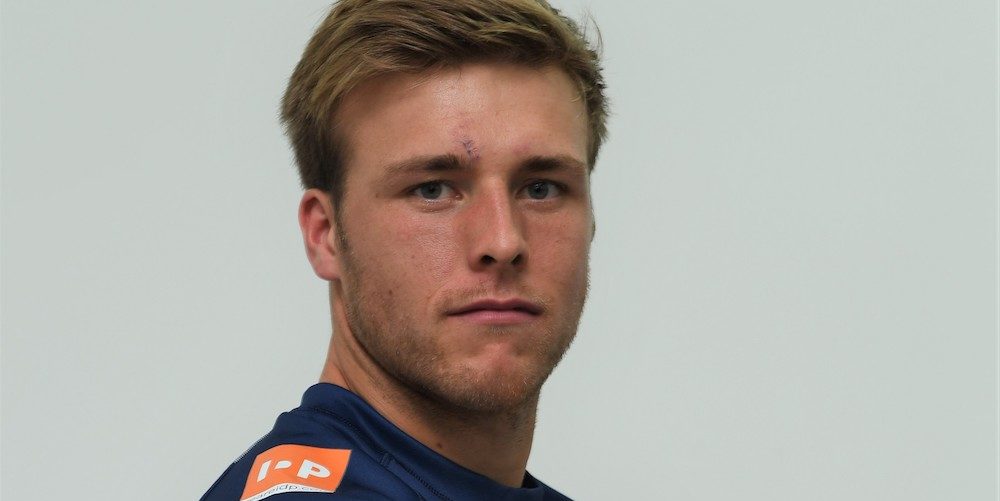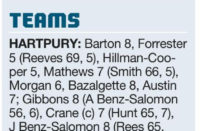Adam Peters wants to play in the Premiership. Of course he does. The 26- year-old club captain of Coventry has spent five seasons in the Championship. First with Richmond, then with Rotherham and now with the West Midlands outfit where he has shone as one of the division's standout loose forwards.
“I believe I'm good enough to make the step up,” he tells The Rugby Paper. “I also believe that once I get the opportunity to play in the Prem I'll be good enough to stay there. That is 100 per cent my sole purpose in rugby.
“That's been my dream ever since I picked up a ball. I have every capability of doing so.”
There is a catch. Given the structural and financial inequalities that exist in English club rugby, Peters has a very small chance, if any at all, of achieving his goal if he stays at Coventry.
The club may have helped launch the idea of top-flight rugby when the pyramid was first established in 1987, but that inaugural season was their only appearance at the highest echelon. In fact, of the 28 clubs to have featured in the first division, Coventry are the only one with just a solitary season.
Coventry have made impressive strides in recent years. As recently as 2018 Butts Park Arena west of the city centre was home to third tier rugby.
Last season Peters and his teammates finished fourth in a campaign truncated by the pandemic and attracted an average of 2,466 fans per game, making Butts Park the most filled stadium in the league relative to its capacity.
But that counts for little in this cut-throat world. As is evidenced by the fortune spent by Ealing, any hope of promotion to the Premiership requires a sizable war chest. And even if funds were available, there is no guarantee that they'd be spent immediately.
“We're adopting a slow and steady approach,” says Nick Johnston, the managing director at Coventry. “We're playing the long game. We want to play in the Premiership and we believe we have the raw ingredients necessary to do so. But we will not adopt a short-term approach. There are no sustainable quick fixes. There are plenty of examples in the game of clubs that crashed and burned.”
London Welsh are the best example and the spectre of the club that disbanded in 2017 after 132 years of activity looms over this narrative like the ghost at the feast. Wasteful spending, exemplified in the purchase of World Cup-winning All Black Piri Weepu, compounded an ailing bottom line. Following liquidation and relegation from the Premiership, the RFU declared the club's position untenable.
“They're not the only ones,” Johnston says of the Icarus-like club that flew too close to the sun. “Look at Richmond. They've only just clawed their way back. It's a tough slog to regain your wins. That's why we have to be methodical.”
Plans are under way to redevelop Butts Park and increase its capacity to 12,000 with an adjoining hotel and a hospitality suite at either end of the pitch.
“We need to ensure that our club operates as a successful business where we are turning a profit every day of the year, not just on the 15 home games a season,” Johnston adds. “We want to appeal to businesses to host events and conferences on our premises. All Championship clubs have been criticised for not running sustainable programmes, well, this would help address that.” But the fruit of this hard work will take time to materialise. Johnston has time.
Peters and the rest of his teammates do not. So while it is commendable that Coventry are ploughing down a more sensible path, it does mean that their playing staff will reach a crossroads sooner rather than later.
“From a selfish point of view, I'd love it if we could be fast tracked,” Peters admits. “I'd love to represent Coventry in the Premiership but that doesn't look likely, not any time soon. At the end of the day, if an opportunity was offered by a bigger club I'd grab that bull by the horns with both hands. I'm pretty sure the club would understand.”
“Oh, we'd encourage it,” Johnston says when asked about this hypothetical scenario. “We can't be getting in the way of opportunities for our players. We have to accept that our long-term approach might see us struggle to keep players. But this is factored in our strategy.
“We want to be the club where Premiership clubs want to send their youngsters because we have the best coaching, the best medical staff, the best strength and conditioning, and we offer the best life coaching. We want to attract all young talent. And the talent that has fallen out.
Like Luke Wallace and Nic Dolly (now both with Leicester Tigers having played a handful of games for Coventry). We're open to it. We take pride when our players move on to bigger teams.”

Coventry sit in the middle of four relative giants.
Wasps are on their doorstep and cast the deepest shadow, but Worcester to the west, Leicester to the north and Northampton to the east all exacerbate Coventry's diminutive stature.
“It's a source of pride actually,” Johnson shoots back when asked if these larger neighbours foster a sense of insecurity. “That we've been able to survive this long shows that we have something special. We have tradition, we have heritage. We're celebrating 150 years in 2024. How could we have survived so long if we didn't have something special given our geographic location?”
It's a difficult question to answer, but it does raise another: What is the point of Coventry Rugby Football Club? That is not intended to sound condescending. Here is an organisation steeped in history and committed to improvement. It is filled with ambitious players and managed by responsible administrators. And yet fostering the talents of other clubs and hoping that in a decade the door to the Premiership might be left ajar is realistically the best they can hope for.
“The system is broken,” Peters says. “If it wasn't, you wouldn't be asking me about choosing the club I love or playing Premiership rugby.”
If London Welsh are Icarus, then Coventry are Sisyphus, an equally doomed figure from Greek mythology. The former king of Corinth was dealt the eternal punishment of rolling a boulder up a hill all day only to watch it roll back down again before he reached the summit at night. He'd have no choice but to start over.
“We hope that's not us,” Johnston says, a wry laugh escaping as he does so. “What we're talking about is purpose. If we're sustainable, if we employ sound business practices, if we do things the right way, we'll get to the top of that hill. That is our purpose.”
DANIEL GALLAN



























